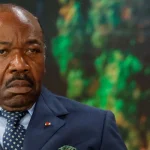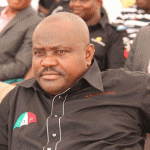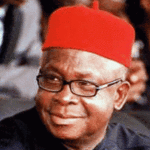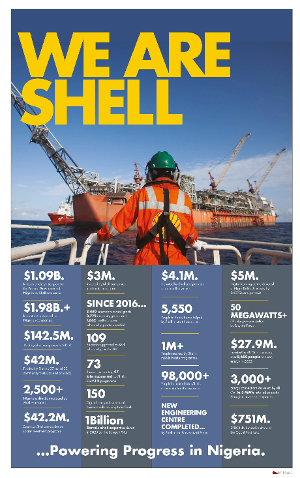INEC And The Failure Of Due Diligence
Articles/Opinion, Featured, Latest Headlines, News Across Nigeria, News From The State Thursday, March 14th, 2019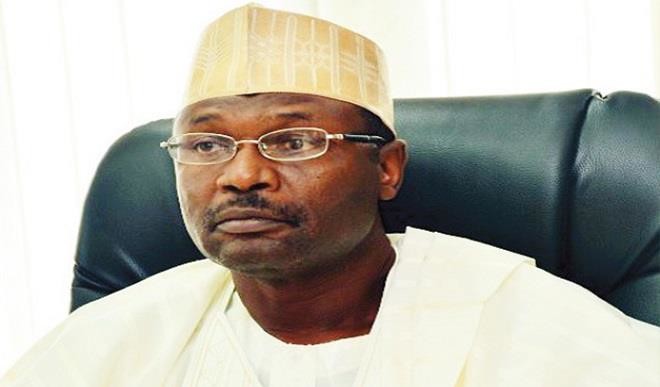
By Sufuyan Ojeifo
When I hailed the postponement of the scheduled February 16 presidential and national assembly elections by the Professor Mahmood Yakubu-led Independent National Electoral Commission (INEC), in an article, I did so with a sense of responsibility. It flowed from the perception that the electoral body was committed to the conduct of free, fair and credible election.
I also expressed sympathy for the INEC in its seeming adroit management of the process, especially against the backdrop of reports at the time that some powerful forces had allegedly influenced the sabotage of elections so as to railroad the Commission into taking a precipitate decision to stagger and isolate the poll that was to hold simultaneously countrywide.
Deciding against muddling through the election, in the face of the shambolic and nightmarish logistical arrangements foisted on the Commission by “circumstances” beyond its control, Professor Yakubu had not only made that historic announcement about 2.30 am on the Election Day (February 16) to postpone it to February 23; but had also by that decision raised the commission’s credibility a notch. To me that was significant because it somewhat eased my earlier cynicism about the integrity of the process.
But the air of self-assurance was sardonically fouled right at the International Conference Centre, the venue of the stakeholders’ meeting where the INEC leadership announced the postponement of the election. What do I mean? The affirmation by Prof. Yakubu that a senatorial candidate of the governing All Progressives Congress (APC) for Niger East, Mohammed Musa, was a registered contractor with the Commission shattered my confidence both in the Commission and electoral process. This was in response to a question by the agent of Alhaji Atiku Abubakar, the presidential candidate of the Peoples Democratic Party (PDP), Mr. Osita Chidoka.
A further aggravation was the critical level of Musa’s involvement in the production and supply of sensitive electoral materials. Activate Technologies, over which he presides as managing director, actually supplied the machines used in printing the permanent voter cards (PVCs). To be sure, Atiku Abubakar had, through one of his publicists, claimed that Musa’s previous company, Act Technologies, had a contract to supply and install PVC card printers in INEC headquarters.
The specific query bordered on the rationale and morality for awarding a subsequent contract to print PVC cards to Musa’s new company, Activate Technologies. According to Atiku Abubakar’s media office, “While Sani Musa has the right to hold any public office in spite of his line of business, it is morally unjustifiable to allow a well-known supplier of sensitive INEC materials to partake in an election in which the key materials to be used for the poll were supplied by him.”
In responding to this specific allegation, the INEC chairman stated: “Yes, I am aware. That company has been working with the Commission since 2011. I assure you that we have a strict system.” He said that “No electoral officer will be compromised (and that) the integrity of the process is protected.” At that point, I considered Yakubu’s assurance dismissive and incapable of obviating the failure of due diligence.
It was clear that a fundamental infraction bordering on the issue of morality had occurred to vitiate the basis of integrity of the entire electoral process. The leadership of the INEC under Yakubu was imprudent and, perhaps, big-headed. It allowed the characteristic impunity that has afflicted successive governments to dominate its administrative decision-making.
A sensitive, serious-minded management that craves credibility, honesty and independence would have fastidiously checked and cleaned up the entire process of elements that may suggest partisan bias. That the company had been working with Commission since 2011 should not have validated its retention when the managing director is a candidate in an election in which the materials he produced would be deployed. Yakubu curiously and unfortunately glossed over it.
The second point at issue is the uninspiring performance of the Commission in the conduct of the series of elections. The presidential and national assembly elections held but many issues plagued the process and the outcome that made it difficult for the supposed runner-up in the presidential election, Atiku Abubakar, to accept defeat and congratulate the acclaimed winner, President Muhammadu Buhari. Unlike the 2015 presidential election conducted by the Professor Attahiru Jega-led INEC, the Yakubu-led Commission failed woefully to deliver an outcome that is pan-Nigeria.
Even if he was unable to measure up to the Jega exemplar, Yakubu should have eliminated so many of the lapses that have questioned the credibility of the elections. The complete details of alleged infractions and malpractices are expected to be tabled before the Presidential Election Petition Tribunal that has already begun to hear Atiku Abubakar’s petition. INEC will have a great deal of explanation to do before the Tribunal under examination and cross-examination. Its documents will largely be used against it.
The PDP hints it has videotapes of the electoral malfeasances at the various polling units and collations centres nationwide. Closely related to these was the collation of results that were at best convoluted. It was curious the Commission had problems with addition of figures. One had thought the results should have been fed into an Excel sheet and programmed to automatically generate accurate scores.
Indeed, final figures were either not correct or simply did not tally, thus creating the suspicion that figures- both real and concocted – were just imputed in the tabulated result sheet and manually calculated using adding machines to achieve predetermined results. It was laughable. As of the time of writing this piece, governorship elections in six states had been declared inconclusive and supplementary elections fixed for March 23.
The nation waits to see how the entire scenario plays out at the Tribunals and how the electoral body will exonerate itself of complicity in the generation of results that possibly did not reflect the true wishes and aspirations of Nigerians who trooped out en-masse to vote for candidates of their choice. Another issue is the capacity of the judiciary to be fearless in delivering justice in the election petitions. The current “peculiar mess” in the judiciary and the National Judicial Council (NJC) over the Walter Onnoghen debacle has created apprehension among judges. But then, any judge who is above board should not be afraid to back justice. This is a challenge to the chairs and members of the Election Petition Tribunals.
In this light and to strengthen INEC to be able reinforce the credibility of the electoral process, there is urgent need for the incoming president to meet minds with the leadership and membership of the 9th National Assembly to effect the necessary amendments to the Constitution and the Electoral Act that will make it impossible for any entity, not even INEC, to henceforth circumvent the electoral processes.
I also call for a complete overhaul of the INEC and its processes in accordance with specific amendments to the extant regulating laws proposed to bolster the integrity of elections. I believe the Executive and the Legislature should be patriotic enough to draw from the significant recommendations of the Justice Muhammad Uwais Electoral Reform Panel report, especially the proposed unbundling of the Commission so that some of its functions can be devolved to ancillary political institutions.
This will largely help to address logistical issues and emplace a system of inter-institutional synergies and checks. Besides unbundling, it will make sense to establish a system of having a representative of each political party in an advisory board of INEC who will be part of decision-making on the conduct of elections as that will eliminate suspicion or apprehension of subtle control of the Commission by the ruling party. Finally, there is need for urgent upgrade of all technologies that will be deployed in the conduct of elections.
- Ojeifo, an Abuja-based journalist, contributed this piece via ojwonderngr@yahoo.com
Related Posts
Short URL: https://www.africanexaminer.com/?p=47724




